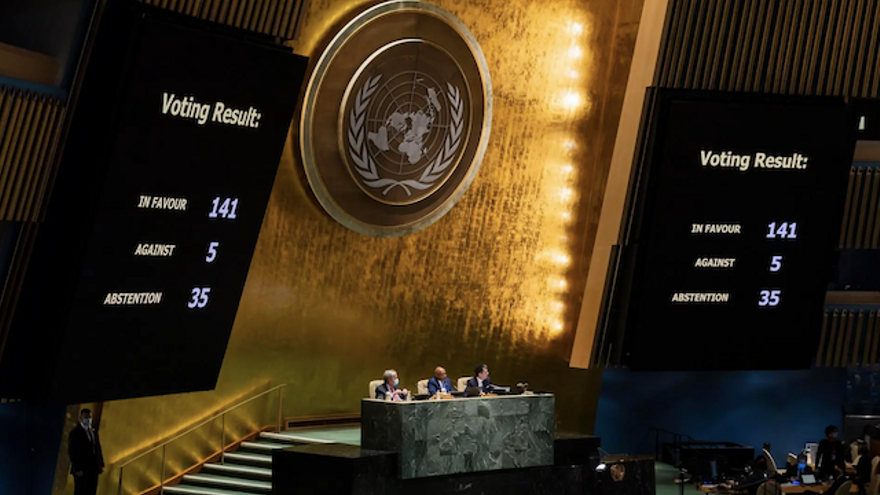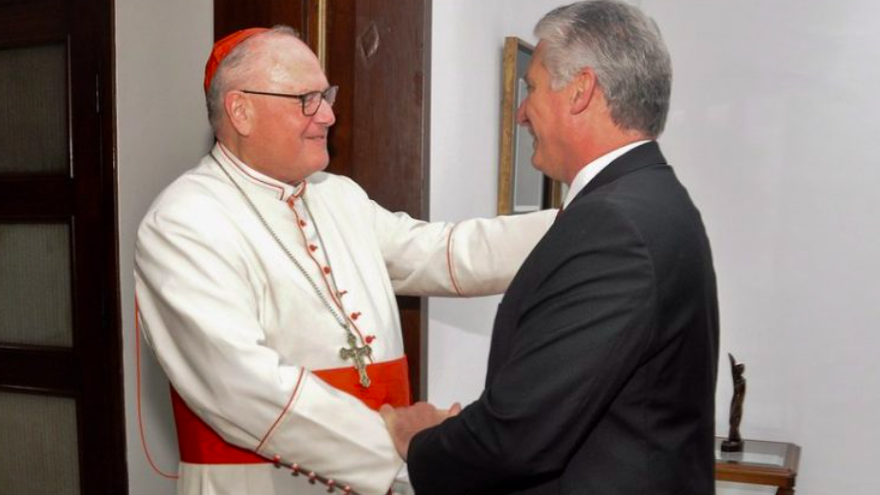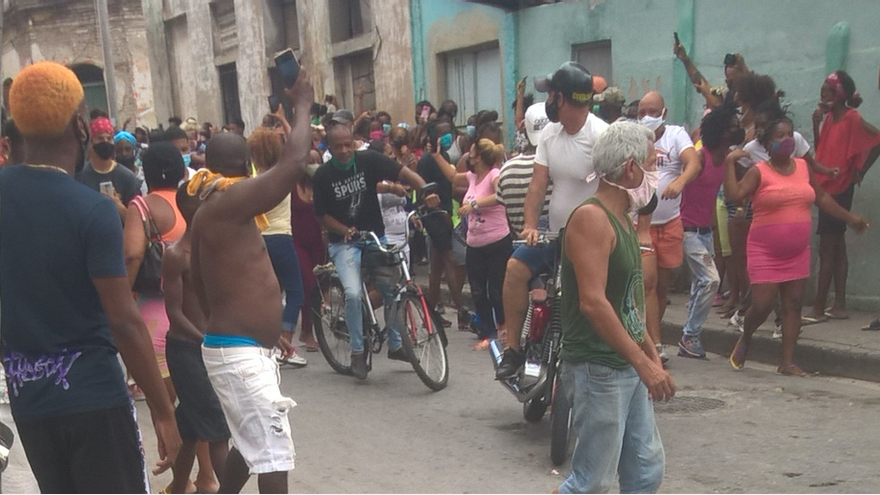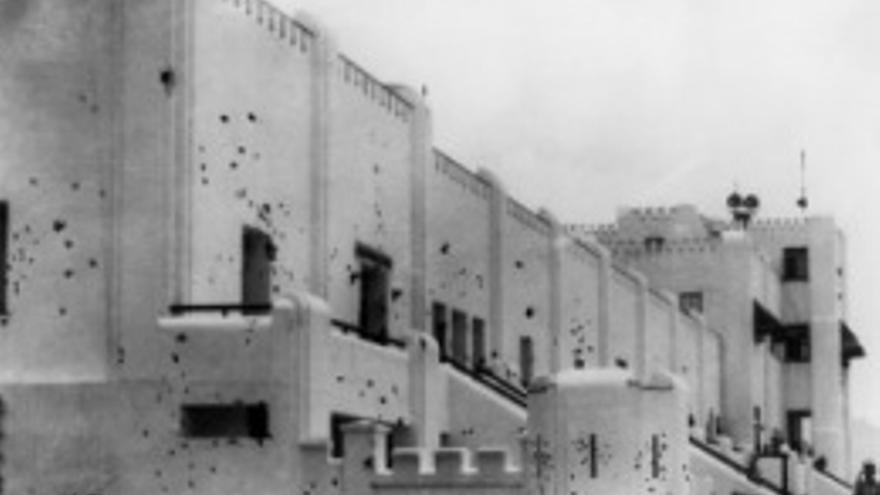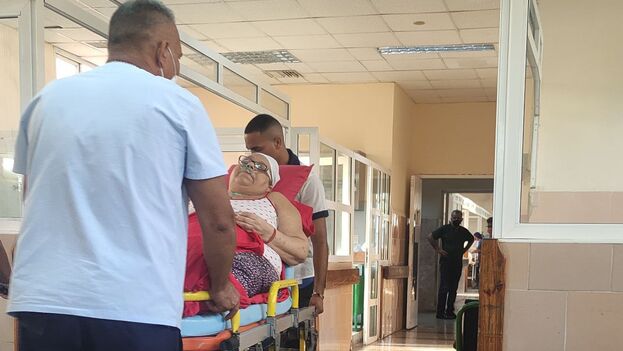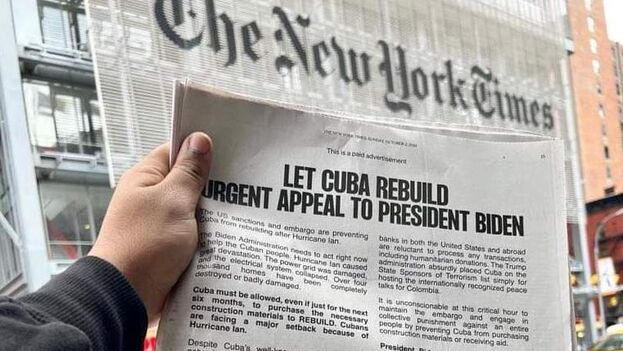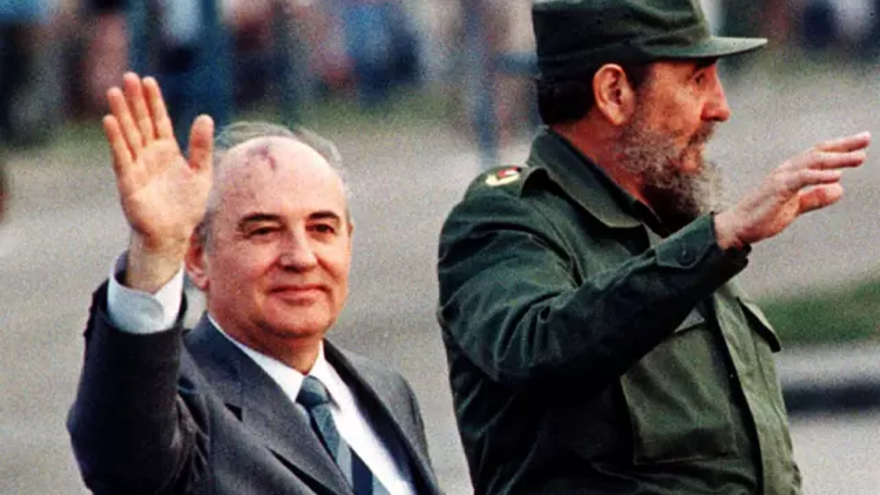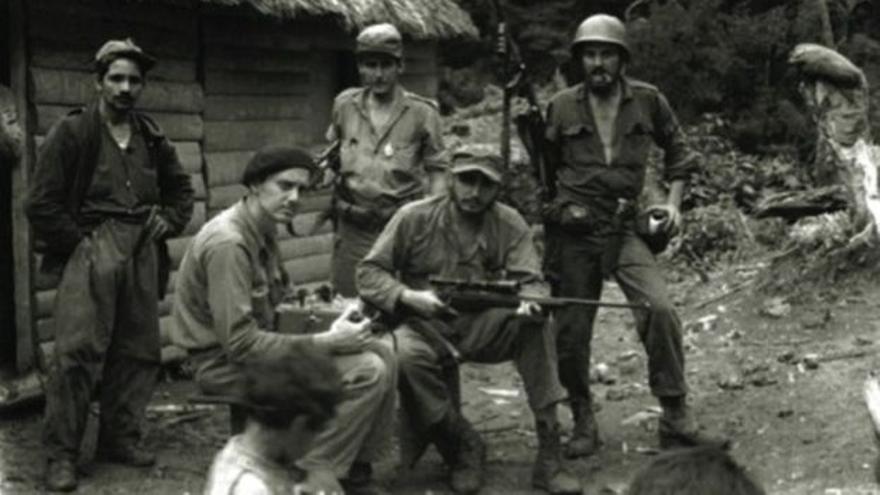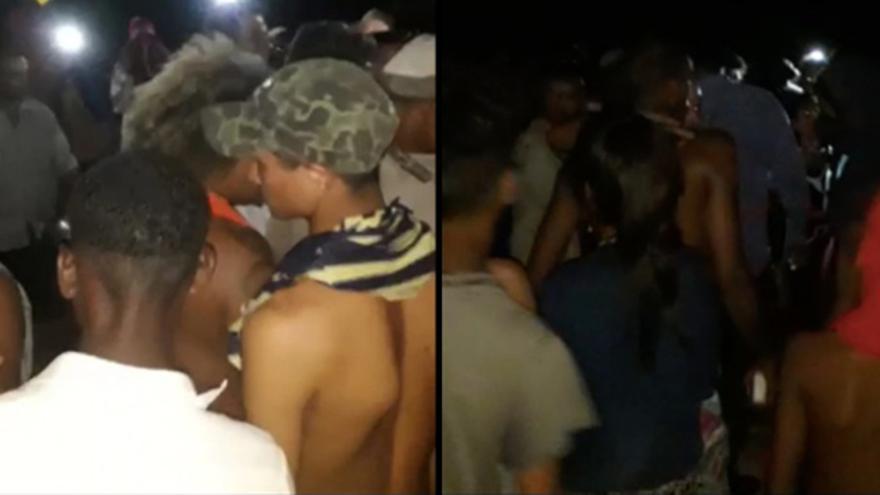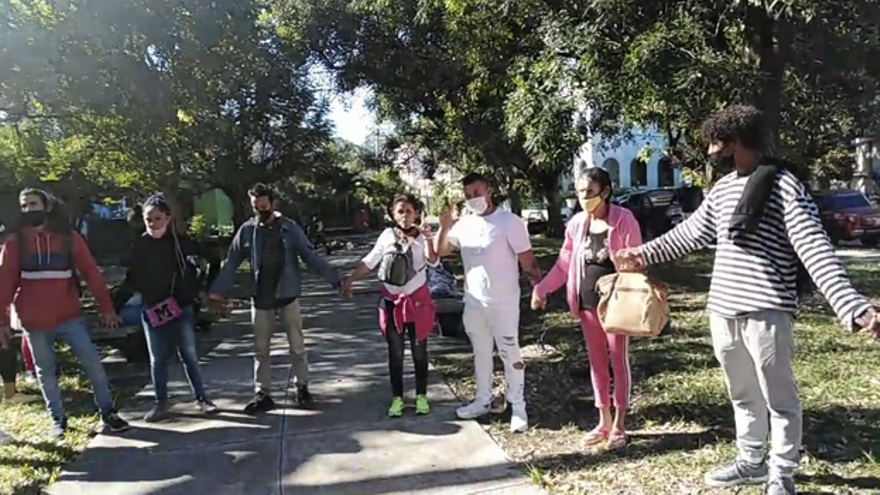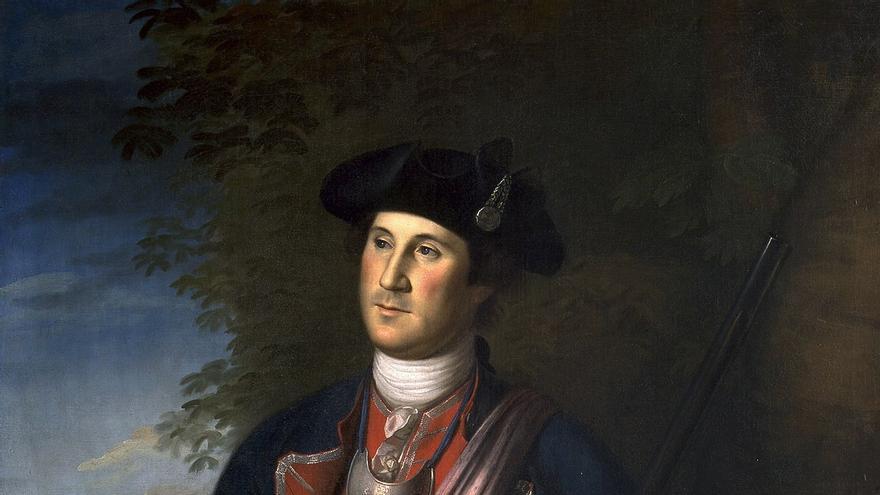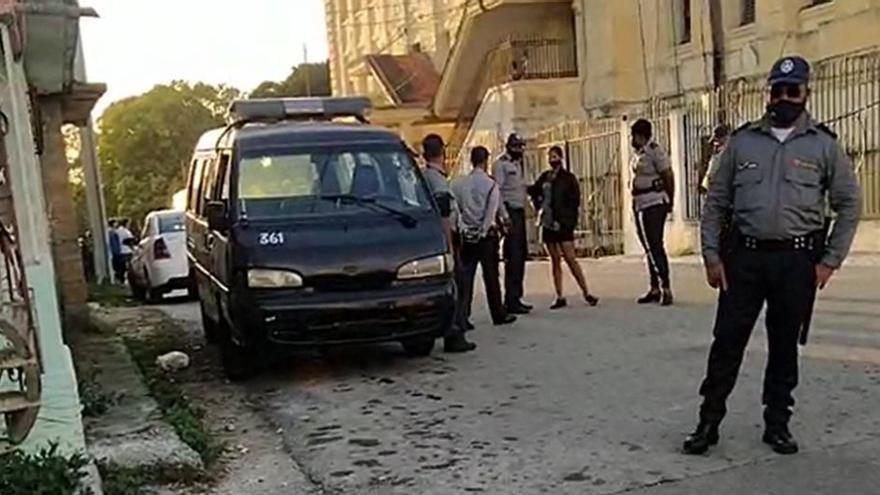
![]() 14ymedio, Frank Calzón, Miami, 19 February 2024 –The decision of Cuba’s Assembly of People’s Power to ignore a petition for political amnesty was taken by the Communist Party of Cuba and must motivate the opposition within the country and free Cubans abroad to redouble their efforts, until the regime frees those in prison. In addition, those freed must be allowed to decide whether to stay on the Island or go into exile. We must address the press, civic associations, our representatives, the unions, etc.
14ymedio, Frank Calzón, Miami, 19 February 2024 –The decision of Cuba’s Assembly of People’s Power to ignore a petition for political amnesty was taken by the Communist Party of Cuba and must motivate the opposition within the country and free Cubans abroad to redouble their efforts, until the regime frees those in prison. In addition, those freed must be allowed to decide whether to stay on the Island or go into exile. We must address the press, civic associations, our representatives, the unions, etc.
The decision of the Assembly of the People’s Power should have had an intelligent response to advance our cause, which is the freedom of the political prisoners and, ultimately, of all Cuban citizens.
On the Island there are those who can contact embassies, addressing democratic governments. Others can urge the Church to offer masses for the freedom of the captives and to address cardinals and bishops around the world, asking them to add their voices to the campaign. And not just the Catholic Church. Also the evangelical Christian churches, the Methodists, the Presbyterians, the Baptists, Lutherans, the episcopals, the communities of the African faith and even the Masonic lodges could mobilize believers in Cuba and their co-religionists around the world. continue reading
Abroad, human rights organizations in exile with relations with international entities should go to them once again
Abroad, human rights organizations in exile with relations with international entities should go to them once again. It is time for civil society on the Island, the Cubans of the diaspora, and their many friends to insist together with democracies around the world so that they condition their diplomatic, economic, cultural and all kinds of relations with Havana on the release of the prisoners in Cuba.
In Washington, senators and congressmen could ask the White House to suspend all cooperation with Havana until it allows the entry of the International Red Cross and Amnesty International into the prisons.
We must address with brief and respectful messages the members of the European Parliament, foreign ministries and those who, as in Sweden and Lithuania, ask that Europe suspend, due to internal repression on the Island, the bilateral agreement with Havana that represents an infusion of millions of euros into tyranny.
For example, Tobias Billström, the Swedish Minister of Foreign Affairs said last August that he had access to “very worrying” reports of torture in Cuban prisons.
There is much more to do, and not only in the United States, because there are communities of Cuban patriots in many countries around the world. We all have something to contribute.
Castroite State Security tries to suppress these efforts by telling us that there is nothing we can do, that the regime will never release anyone, and some repeat the chorus of a very harmful disinformation campaign: they insist that nothing can be achieved until the exile is coordinated in its entirety. Until that happens, they proclaim that all efforts are destined to fail. They lie, as they always have and always will.
The Cuban regime wants to undermine efforts, convincing us of how useless it is to oppose its lifelong despotism, of how fanciful it is for Cubans to dream about freedom. State Security, in addition, promotes discord between pro-democratic organizations, spreads rumors without presenting evidence and on top of that tries to discredit the most effective opposition against them. Thus the tyranny tries to neutralize us.
Those who insist that Cuba is not free because very few pay attention to them, and that we must first get the unity of all the exiles to then develop “the strategy for victory,” achieve the opposite. The way to join efforts is not by defending those who do something, but by joining them, working with them, sharing the dangers, pains and anxiety.
Anyone who accuses Cubans of being “sheep,” of not having the necessary courage to be free, should now join the organizations that tirelessly direct all their arrows against tyranny
Anyone who accuses Cubans of being “sheep,” of not having the necessary courage to be free, should now join the organizations that tirelessly direct all their arrows against tyranny, denounce their crimes and help their victims.
Let them stop preaching hopelessness and lies to discredit those who are acting. Let them stop sowing division and slandering the patriots. If an accusation is made, it is essential to provide evidence.
They should stop insisting that anyone who develops an initiative different from their own is always wrong and acts in bad faith.
Cuba will be free, and every Cuban with decorum has a place in the movement to create a new Cuba. We can all approach the brother who suffers, the mother of a political prisoner, the dissident whom State Security has humiliated.
That is called solidarity, and it is fundamental to the cause of a free homeland on the Island. Because Cuba is more than a geographical term or a political dialectic. Cuba is each Cuban. Cuba is the millions of souls who deserve to be free and who never, throughout the bitter decades of dictatorship, have tired of denouncing the crimes of Castroism and claiming our imperative need for democracy and freedom.
Translated by Regina Anavy
____________
COLLABORATE WITH OUR WORK: The 14ymedio team is committed to practicing serious journalism that reflects Cuba’s reality in all its depth. Thank you for joining us on this long journey. We invite you to continue supporting us by becoming a member of 14ymedio now. Together we can continue transforming journalism in Cuba.

